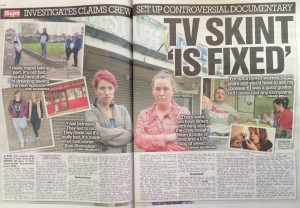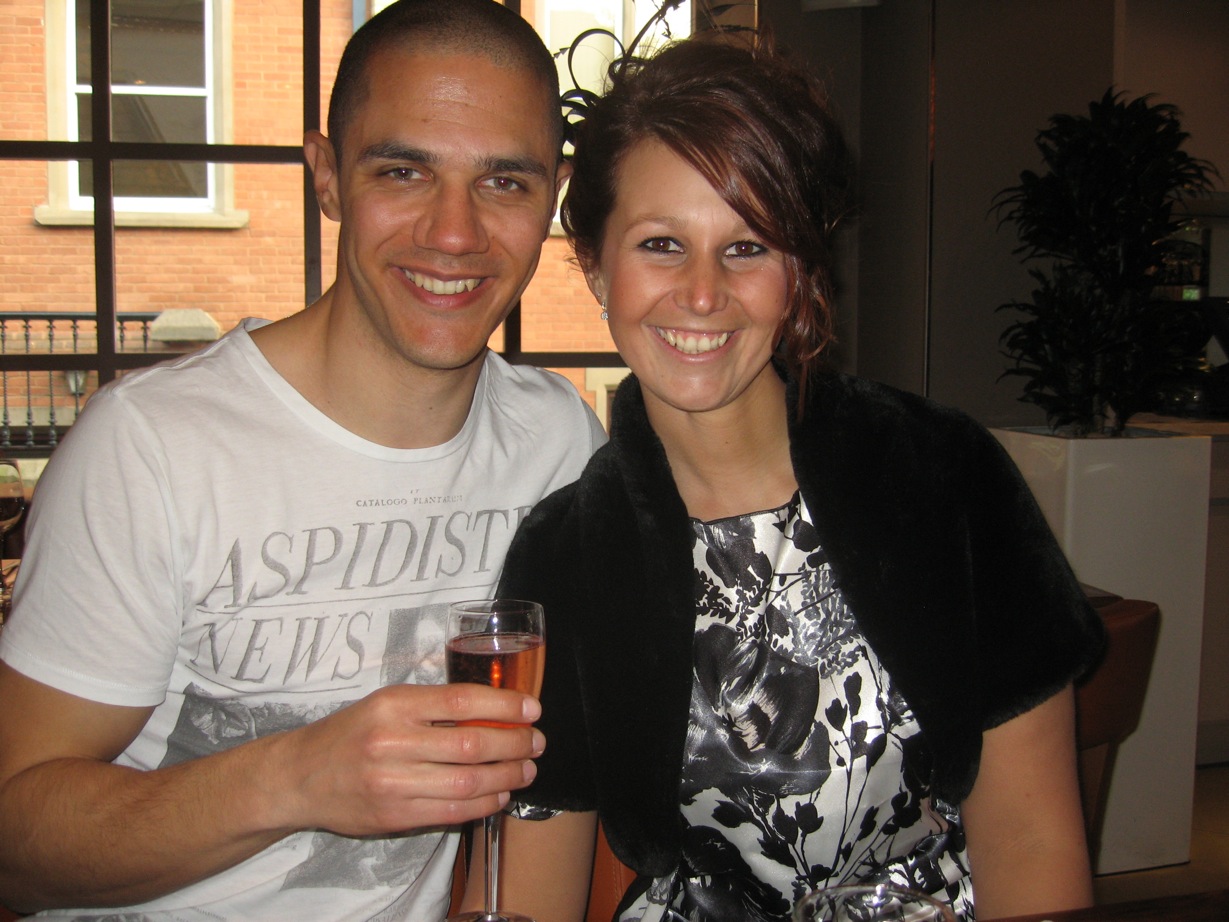According to a story in The Sun newspaper, Channel 4’s documentary Skint ‘is fixed’. For those of you who didn’t watch it: Skint shocked viewers with its scenes of youths stealing motorbikes, smashing windows, shoplifting, drug abuse and lives on benefits. But now many of those depicted have hit back saying the documentary was ‘set up’. 
“I really regret taking part,” says Zoe, one of the people who took part in this real-life documentary focusing on hard-up residents on the run-down Westcliff Estate in Scunthorpe, “It’s not bad round here at all. I’m dreading seeing the next episode.”
Have you been asked to appear in a TV documentary? Read this first!
And another, Lisa is quoted in article as saying: “I feel betrayed. They lied to us. They made out it’s really bad. It’s made us look worse than Shameless.”
Just how bad living on this estate truly is depends on what you compare it to. If compared to the life of the Beckhams, yes you’re poor. But if you’re comparing life here with a starving village in Africa then it might be luxury. But that isn’t the point.
Although a Channel 4 spokesman says the documentary “captures the stories of a group of people, many of whom are friends … in a warm yet unflinching way”, the point is the Sun has quoted rather a lot of people who were in the show as saying they were very much misrepresented.
So how, as the camera ‘never lies’ – and people in the programme were filmed stealing bikes, smashing windows and so on – could this happen?
Firstly, let me say this: despite all the talk on press regulation, I am absolutely amazed that documentary making is still allowed to go on as it does as it seems inherently unfair to the interviewee. Here’s how it works…
At Featureworld we get around one request from a documentary maker a day asking if one of our interviewees would like to take part in a documentary. To make this clear – television such as Daybreak, This Morning, BBC News, local news programmes are not classed as documentaries – and as such, they are not the sort of programmes that concern us.
What concern us here are the endless requests from researchers from TV Production companies looking to make a real-life film such as ‘Skint’. Often they have approached our interviewees via Facebook in the hope that someone will be flattered into being talked on to TV.
“I am passionate about raising awareness for ovarian cancer,” said one to our interviewee recently (so passionate that she hadn’t checked properly because the interviewee had a different kind of cancer…). “Our mission is to help you raise awareness in a sensitive documentary” says another.
Other times they contact us for addresses and phone numbers (which they hope to get for free but might pay a small fee for) and are somewhat put out when we say we must ask the interviewee if it is OK for us to pass them such personal info.
As it is not for us to turn down something for an interviewee, they are always told about every request that comes in for them. We have to say most families then go through all the discussions about whether to do such a programme – only to find all that is a waste of time. As most researchers are simply ‘developing ideas’ and haven’t even pitched it to a channel, the idea will never even go ahead. Sadly, they often forget to tell the families – we find they leave that to us…
But even when the documentary programme is going to go ahead, we find interviewees – because they are appraised of all the pros and cons by ourselves – have second thoughts.
Firstly, there is often hardly any payment. Researchers claim they can’t pay people for their time because it could affect the integrity of the programme – ie: someone is just saying something for money. Hence most documentary makers conveniently avoid paying anyone anything (that’s also a good way of making more profit for them.) But the issue is that documentary making is extremely time-consuming. It involves tens of hours of filming often to get just a few minutes’ footage, and all the hassle created by having a team of people with lights, wires and big vans in your home. So not paying people anything is often just unrealistic.
But even if people agree to do a documentary for free, there are other issues. At Featureworld we give copy approval prior to publication so the interviewee can be assured their article is accurate and shows them as they want to be shown. But in the world of documentaries the participant has no editorial control. Documentary makers would no doubt say they can’t have people choosing which scenes are included or not in the film. But we rarely find interviewees change anything in their stories when they are presented with them. Any changes are minor so this is something, particularly as this is often someone’s personal life we are talking about, we find very unfair.
Indeed this appears to be why the Westcliff Estate residents feel so aggrieved because they say all the good parts of their lives were simply edited out, leaving just the bad. To explain this properly – boring parts of people’s lives don’t make good telly. So all the interesting bad parts tend to be squished into the programme. Hence, you might not be happy with the way you are portrayed.
Naturally too such filming is intrusive and a clever documentary maker might well linger on parts of your life you’d rather others didn’t see. For example, the piled up washing might have been like that just for one day because you were too busy filming your documentary – but when beamed to millions of viewers, that pile will tell it’s own story (lazy, dirty?)
Don’t think of complaining however about the editing – because it seems few complaints to OFCOM of this nature are ever upheld – because you invited them in in the first place. And anyway you will have been required to sign a release form that not only gives up any right to editing, but says you give up all rights to the film being made (throughout the world and even the Solar system!). This also gives that TV Production company the right to sell the film of you abroad, and for it to be endlessly repeated sometimes years later (when your life might have moved on.)
Unfortunately the residents of WestCliff Estate would not have had an agent looking out for them – pointing out all of these drawbacks. Hence they naively went ahead blissfully unaware of any of the pitfalls.
You might be lucky. The documentary you do might catapult you to fame and riches, it might show you in a positive light or raise awareness for your cause. There are lots of fly-on-the-wall documentaries that have been insightful, sensitive and produced with real thought towards the people taking part. But the drawback is if like the Scunthorpe residents, you don’t like the documentary about you, then there’s no going back. It is hard to see where for many interviewees the benefit is and taking part in one is a risk.



